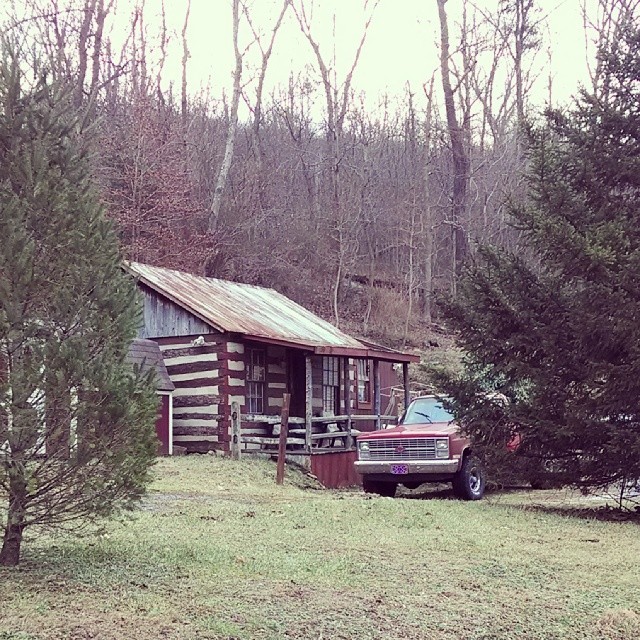 It is surprising to think that large swaths of the United States were not fully mapped out even as little as 200 years ago. At first a scientific oddity, the geologic map, invented by scientific hobbyist William Maclure, proved to be essential reading for rugged frontier entrepreneurs of the early 19th century. It paved the way, literally, for the industrial age. But it was not Maclure alone who popularized this map, but rather New Harmony, a repurposed failed-Utopian community built in part by Maclure himself in order to bring science to the people. It is a crazy story.
Click to Read More...
It is surprising to think that large swaths of the United States were not fully mapped out even as little as 200 years ago. At first a scientific oddity, the geologic map, invented by scientific hobbyist William Maclure, proved to be essential reading for rugged frontier entrepreneurs of the early 19th century. It paved the way, literally, for the industrial age. But it was not Maclure alone who popularized this map, but rather New Harmony, a repurposed failed-Utopian community built in part by Maclure himself in order to bring science to the people. It is a crazy story.
Click to Read More...
Technology Writing
A few recently posted stories:
![]()
Features Through the Ages
Tue, 11 May 2021
Sun, 11 Apr 2021
 What makes for human intelligence? Decision making -- to decide based on both past experiences, as well as the ability to decide about novel situations, those with no precedent. And this is how machines can learn as well, so the reasoning goes. To characterizing personal motivation, one always acts in the desire of a positive outcome. Games, such as checkers, are a simple example of this drive. Every move a player makes has the same objective, to win. Not surprisingly, the first work around artificial intelligence, from the 1950s, taught computers how to play checkers.
Click to Read More...
What makes for human intelligence? Decision making -- to decide based on both past experiences, as well as the ability to decide about novel situations, those with no precedent. And this is how machines can learn as well, so the reasoning goes. To characterizing personal motivation, one always acts in the desire of a positive outcome. Games, such as checkers, are a simple example of this drive. Every move a player makes has the same objective, to win. Not surprisingly, the first work around artificial intelligence, from the 1950s, taught computers how to play checkers.
Click to Read More...
Mon, 22 Mar 2021
 This month: A machine learning hack for corrupting AI models; the last strand breaking is not the cause of failure, how analog computers work; some tips about game theory; Linux Seccomp Notify extends out to file management; How software updates can be hijacked to infiltrate software supply chains; Monorepo or Multi Repo? The Scunthorpe Problem. And more! Click to Read More...
This month: A machine learning hack for corrupting AI models; the last strand breaking is not the cause of failure, how analog computers work; some tips about game theory; Linux Seccomp Notify extends out to file management; How software updates can be hijacked to infiltrate software supply chains; Monorepo or Multi Repo? The Scunthorpe Problem. And more! Click to Read More...
Mon, 01 Mar 2021
 Everybody knows Google collects a lot of personal data. And we are all more or less OK with that. But as all this info gets fed into the mighty Google machinery for creating artificial intelligence (AI), a lot of bad human instincts get mixed in with the results. Trace elements of racism, hatred, and violence which are all embedded in the models Google uses to appeal to our sympathies, i.e. to influence our behavior. Click to Read More...
Everybody knows Google collects a lot of personal data. And we are all more or less OK with that. But as all this info gets fed into the mighty Google machinery for creating artificial intelligence (AI), a lot of bad human instincts get mixed in with the results. Trace elements of racism, hatred, and violence which are all embedded in the models Google uses to appeal to our sympathies, i.e. to influence our behavior. Click to Read More...
Wed, 17 Feb 2021
 Measures that become targets cease to be measures; AI confused by jumbled sentences but can make avocado chairs. Why Optimization is forever at odds with efficiency; Configuration-as-code is better than Infrastructure-as-Code; The dangers of equating emotion with weakness; Strange spatial dimensions and time-striped event horizons; Genetic Assertive Mating... Click to Read More...
Measures that become targets cease to be measures; AI confused by jumbled sentences but can make avocado chairs. Why Optimization is forever at odds with efficiency; Configuration-as-code is better than Infrastructure-as-Code; The dangers of equating emotion with weakness; Strange spatial dimensions and time-striped event horizons; Genetic Assertive Mating... Click to Read More...
Tue, 16 Feb 2021
 About 10 years ago, I embarked on a project to parse the contents of the hulking XML file that iTunes creates to hold all the metadata about the music I listen to. There is a ton of interesting info buried in there about my listening habits. Interesting to me, at any rate. And this project is where I learned how to decode the nine-digit Play Date tag, and how the format follows a tradition that goes all the way back to the birth of the Apple Macintosh itself. Click to Read More...
About 10 years ago, I embarked on a project to parse the contents of the hulking XML file that iTunes creates to hold all the metadata about the music I listen to. There is a ton of interesting info buried in there about my listening habits. Interesting to me, at any rate. And this project is where I learned how to decode the nine-digit Play Date tag, and how the format follows a tradition that goes all the way back to the birth of the Apple Macintosh itself. Click to Read More...
Tue, 09 Feb 2021
 First of all, Fuck Apple, for what it did to the music business. For those of you wondering how to fix the problem of the proliferating shadow album ratings (which has been a problem in iTunes for a decade), Imma get to that in a minute. But first I want to say Fuck Apple for promising to save the recorded music industry in 2001 with its iPod, only to relegate music to just another neglected feature on the iPhone two decade later. Click to Read More...
First of all, Fuck Apple, for what it did to the music business. For those of you wondering how to fix the problem of the proliferating shadow album ratings (which has been a problem in iTunes for a decade), Imma get to that in a minute. But first I want to say Fuck Apple for promising to save the recorded music industry in 2001 with its iPod, only to relegate music to just another neglected feature on the iPhone two decade later. Click to Read More...
Mon, 25 Jan 2021
 Once you have set up some infrastructure, which is to say you have a virtual machine (or even a real one) running a Linux OS of some sort, the next step is to identify this machine as your own on the Internet. You need to connect your domain name to the server Internet address (IP number). And you need to have software to serve up your pages when visitors call -- the job of the Apache Web server in this tutorial. Click to Read More...
Once you have set up some infrastructure, which is to say you have a virtual machine (or even a real one) running a Linux OS of some sort, the next step is to identify this machine as your own on the Internet. You need to connect your domain name to the server Internet address (IP number). And you need to have software to serve up your pages when visitors call -- the job of the Apache Web server in this tutorial. Click to Read More...
Thu, 31 Dec 2020
 Lambda Calculus and the birth of computer science; computer science != algorithmic science; The limits of artificial intelligence; why learn and adapt is better than prevent and fix; Google clamps down on unflattering AI research; the Astley Paradox; the surprise end of CentOS; Why SecOps does not get invited to the holiday parties; and More! Click to Read More...
Lambda Calculus and the birth of computer science; computer science != algorithmic science; The limits of artificial intelligence; why learn and adapt is better than prevent and fix; Google clamps down on unflattering AI research; the Astley Paradox; the surprise end of CentOS; Why SecOps does not get invited to the holiday parties; and More! Click to Read More...
Tue, 01 Dec 2020
 Most days I go running. Podcasts and video lectures help me pass the time. And to goose my dawdling mind, I try to remember one useful bit of information from each presentation. And by later Tweeting this micro-epiphany, I can properly understand the idea, in 280 characters or fewer, so as to recall it at social gatherings (when we have those again) and whatnot. So, here are my notes on information technology, technology, science and other matters, as taken from these podcasts and videos as well as from various other forms of online flotsam. Click to Read More...
Most days I go running. Podcasts and video lectures help me pass the time. And to goose my dawdling mind, I try to remember one useful bit of information from each presentation. And by later Tweeting this micro-epiphany, I can properly understand the idea, in 280 characters or fewer, so as to recall it at social gatherings (when we have those again) and whatnot. So, here are my notes on information technology, technology, science and other matters, as taken from these podcasts and videos as well as from various other forms of online flotsam. Click to Read More...
Wed, 18 Nov 2020
 In this tutorial, I set up a virtual Linux server on DigitalOcean. This installment is part of a longer series on setting up a Web server in the cloud. Here, I review the hardware and software server options offered by DigitalOcean, and then go through the process of setting up a public-private key for securely accessing the server, by way of ssh. Click to Read More...
In this tutorial, I set up a virtual Linux server on DigitalOcean. This installment is part of a longer series on setting up a Web server in the cloud. Here, I review the hardware and software server options offered by DigitalOcean, and then go through the process of setting up a public-private key for securely accessing the server, by way of ssh. Click to Read More...
Sun, 01 Nov 2020
 This month: eBPF makes the Linux kernel programmable; feature flags can speed development; Darwin and the Origin of Species as technical writing; RSA vs. DSA for SSH; the challenges of spacing Web pages; share communications, not memory. Click to Read More...
This month: eBPF makes the Linux kernel programmable; feature flags can speed development; Darwin and the Origin of Species as technical writing; RSA vs. DSA for SSH; the challenges of spacing Web pages; share communications, not memory. Click to Read More...
Wed, 19 Aug 2020
 More than two centuries on, James Rumsey still can not get credit for inventing the steamboat. That after hundreds of years, this West Virginian is still the victim of politics, piled under by the sediment of history, a centuries-old victim of cancel culture. And why would anyone care? The Rumsey story was such as wild ride that you get hooked in, if not for the shady lineage of steamboat, then the sheer improbability of it all. Click to Read More...
More than two centuries on, James Rumsey still can not get credit for inventing the steamboat. That after hundreds of years, this West Virginian is still the victim of politics, piled under by the sediment of history, a centuries-old victim of cancel culture. And why would anyone care? The Rumsey story was such as wild ride that you get hooked in, if not for the shady lineage of steamboat, then the sheer improbability of it all. Click to Read More...
Sun, 22 Feb 2015
 Machine learning models can solve any problem at hand, given infinite data and time for training. With infinite resources, you could simply map into memory every possible answer, and then every possible path to every answer. The challenge in making deep learning practical is to find a way to get the desired result with only a finite amount of resources, namely, what you have on hand. Click to Read More...
Machine learning models can solve any problem at hand, given infinite data and time for training. With infinite resources, you could simply map into memory every possible answer, and then every possible path to every answer. The challenge in making deep learning practical is to find a way to get the desired result with only a finite amount of resources, namely, what you have on hand. Click to Read More...
Wed, 13 Apr 2005
 In early 1993, then-NASA employees Donald Becker and Thomas Sterling devised a way to yoke multiple low-cost desktop computers together so they could offer the combined performance of a much higher-cost supercomputer. Twelve years later, Becker can take a degree of pride in the fact that more than 50 percent of the machines on the Top 500 List of supercomputers are clusters of this sort. (Government Computer News) Click to Read More...
In early 1993, then-NASA employees Donald Becker and Thomas Sterling devised a way to yoke multiple low-cost desktop computers together so they could offer the combined performance of a much higher-cost supercomputer. Twelve years later, Becker can take a degree of pride in the fact that more than 50 percent of the machines on the Top 500 List of supercomputers are clusters of this sort. (Government Computer News) Click to Read More...
Fri, 19 Mar 2004
 By 2020, it has been estimated, as many as 10 million self-driving cars will be on the road. Though optimistic, the prediction seems plausible enough: Google is making amazing strides in its self-driving prototype, and BMW, Mercedes, and Tesla are already adding self-driving features into their autos.
By 2020, it has been estimated, as many as 10 million self-driving cars will be on the road. Though optimistic, the prediction seems plausible enough: Google is making amazing strides in its self-driving prototype, and BMW, Mercedes, and Tesla are already adding self-driving features into their autos.
Remember, if you will, that not all that long ago the very idea of a self-navigating vehicle was mostly the stuff of SciFi. It certainly seemed fairly preposterous in 2004, when I had the opportunity to witness the first-ever autonomous vehicle race, held in the Mojave Desert, by the U.S. Defense Advanced Research Projects Agency(DARPA). So it was remarkable then that the winning vehicle had managed to travel was 7.4 miles on its own, just as it is remarkable today how quickly these robot vehicles have evolved since then. Here is my account of that day. Click to Read More...
Mon, 18 Aug 2003
 Eiffel was one of the first object-oriented programming languages ever written, and is still considered by many to be the purest. Though it has never been widely used, some are finding Eiffel
to be an appealing alternative in the face of increasing security concerns and the growing unwieldiness of C++. Eiffel has a unique property, called Design by Contract, that proponents claim can be used to reduce bugs and avoid security holes.
Click to Read More...
Eiffel was one of the first object-oriented programming languages ever written, and is still considered by many to be the purest. Though it has never been widely used, some are finding Eiffel
to be an appealing alternative in the face of increasing security concerns and the growing unwieldiness of C++. Eiffel has a unique property, called Design by Contract, that proponents claim can be used to reduce bugs and avoid security holes.
Click to Read More...
Sat, 01 Feb 2003
 Cognitive radios do not exist yet. But Joseph Mitola, a computer scientist at Mitre, in Bedford, MA, aims to make them a reality by exploiting the added processing power that will be built into the wireless devices of tomorrow. Mitola is one of the pioneers of software radio. Click to Read More...
Cognitive radios do not exist yet. But Joseph Mitola, a computer scientist at Mitre, in Bedford, MA, aims to make them a reality by exploiting the added processing power that will be built into the wireless devices of tomorrow. Mitola is one of the pioneers of software radio. Click to Read More...
Tue, 04 Dec 2001
 Like fight-fatigued battalions who come to a temporary truce but refuse to give up the war, vi and EMACS users keep an uneasy standoff in many Linux communities. When pressed, most people familiar with both editors will say the difference between the two is primarily one of speed vs. flexibility. But why has this difference of views remained a divisor of programmer culture for more than four decades now? Click to Read More...
Like fight-fatigued battalions who come to a temporary truce but refuse to give up the war, vi and EMACS users keep an uneasy standoff in many Linux communities. When pressed, most people familiar with both editors will say the difference between the two is primarily one of speed vs. flexibility. But why has this difference of views remained a divisor of programmer culture for more than four decades now? Click to Read More...